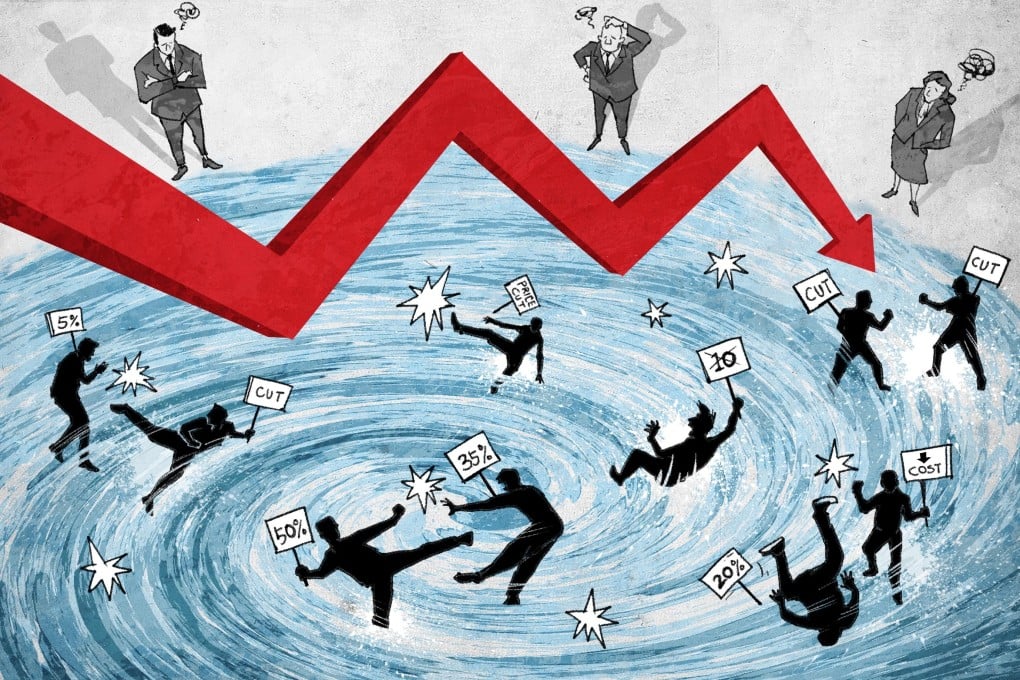
A storm is gathering strength in China’s overheated industries, and its name is neijuan, as government intervention squares up against the law of the jungle.
The main conceptual idea of the text is that "neijuan," or vicious competition within Chinese industries, poses a significant threat to the country's economic stability and transformation.
The text highlights:
* The damaging impacts of neijuan: unsustainable strategies, diminishing returns, and industry stagnation.
* The urgency of the situation: neijuan is harming an already fragile Chinese economy in its attempt to shift from traditional growth models to new, technology-driven ones.
* The need for Beijing's intervention: Businesses are seeking self-regulation to address neijuan, but the government's role in curbing this destructive competition is implied as essential for broader economic recovery and growth.
Essentially, the text argues that Beijing must find effective solutions to mitigate neijuan to ensure a smooth and sustainable economic transition for China.
The main conceptual idea of the text is that "neijuan," or vicious competition within Chinese industries, poses a significant threat to the country's economic stability and transformation. The text highlights: * The damaging impacts of neijuan: unsustainable strategies, diminishing returns, and industry stagnation. * The urgency of the situation: neijuan is harming an already fragile Chinese economy in its attempt to shift from traditional growth models to new, technology-driven ones. * The need for Beijing's intervention: Businesses are seeking self-regulation to address neijuan, but the government's role in curbing this destructive competition is implied as essential for broader economic recovery and growth. Essentially, the text argues that Beijing must find effective solutions to mitigate neijuan to ensure a smooth and sustainable economic transition for China.